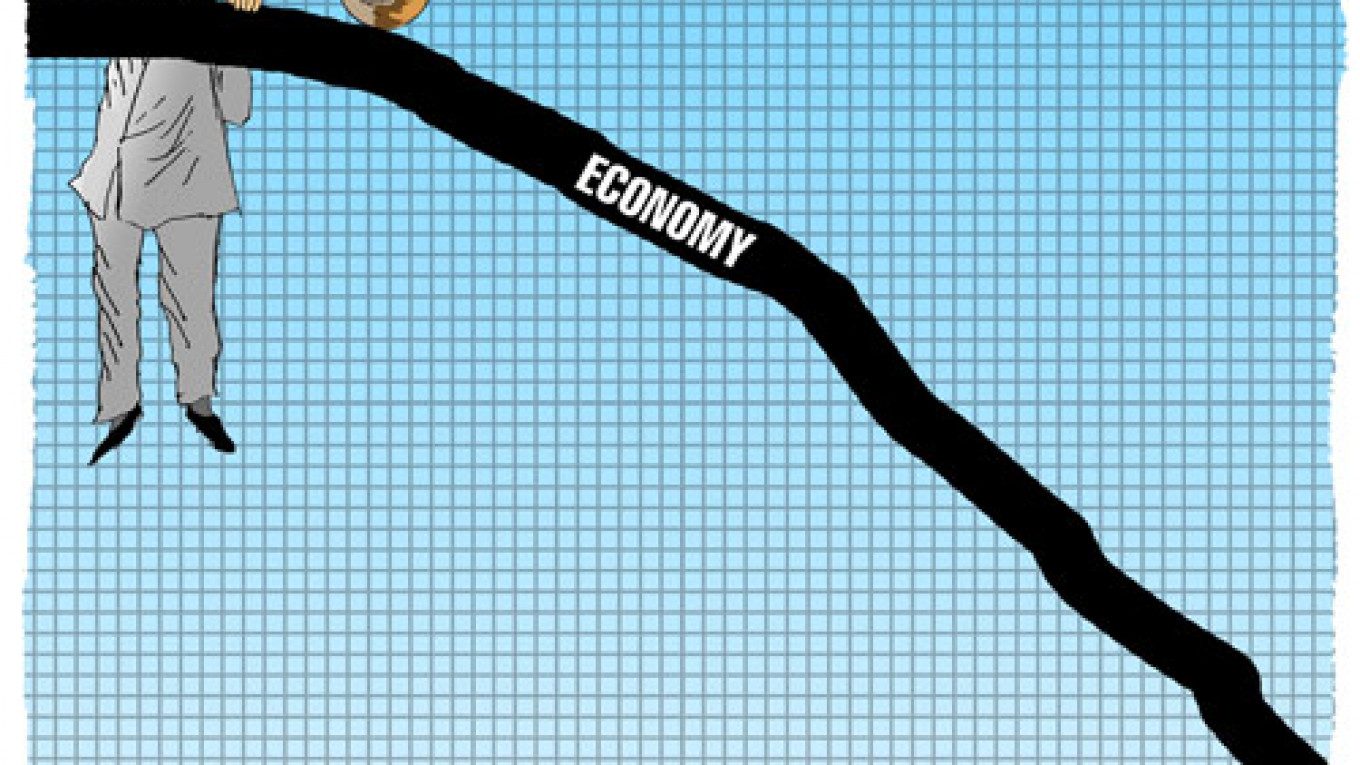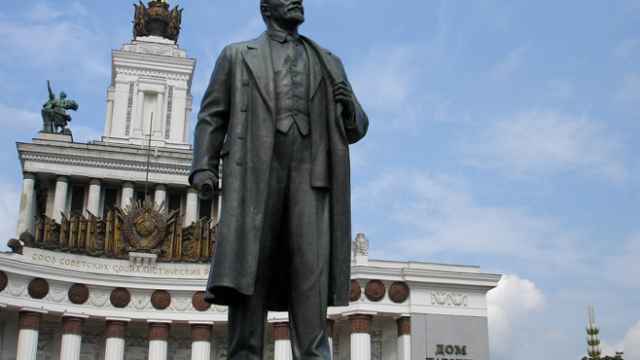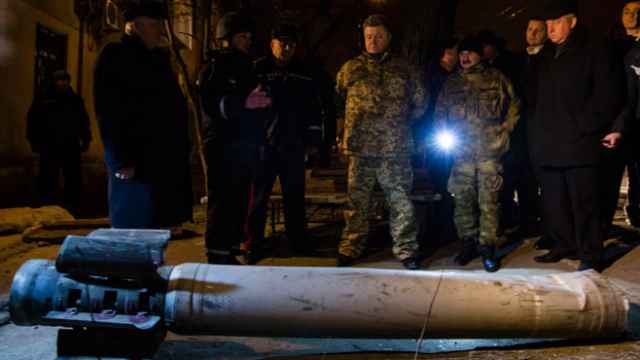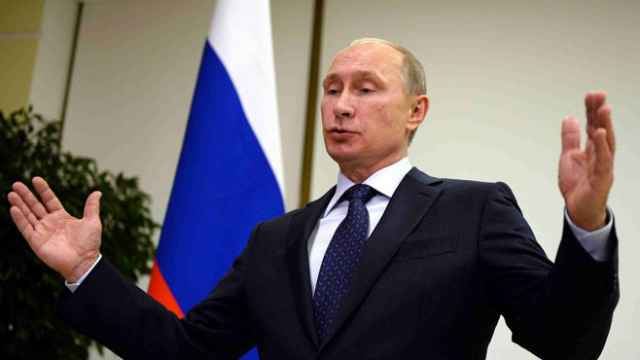Despite Vladimir Putin's stratospheric approval ratings in the wake of his Ukrainian gambit, a storm is gathering on the horizon that risks setting off a crisis of legitimacy that could severely undermine the stability and even the survival of his regime. Though many inside and outside of Russia have argued that Putin scored a key strategic victory in his seizure of Crimea and his engineering of a frozen conflict in Ukraine that serves Moscow's interests, Vladimir Vladimirovich would do well to remember the timeless warning from the Book of Proverbs: "Pride goes before destruction, and a haughty spirit before a fall."
Any regime, whether democratic or authoritarian, relies in some degree on popular legitimacy. The late political scientist Seymour Lipset conceived of legitimacy as involving "the capacity of a political system to engender and maintain the belief that existing political institutions are the most appropriate or proper ones for the society." This definition acknowledges two realities applicable to the legitimacy of nondemocratic regimes: first, it recognizes that some societies may not deem democratic political institutions to be the "most appropriate" ones to fit their needs and values. Second, it acknowledges that nondemocratic regimes have some capacity to shape their populations' perceptions of the appropriateness of the regime's institutions.
Political scientists have further distinguished between different types of popular support for a regime and their role in generating political legitimacy. Instrumental support refers to popular support offered to the regime based on its objective performance, usually with reference to the country's economic performance and the regime's capacity to govern effectively. As such, instrumental support is conditional and subject to erosion if the regime cannot deliver.
This contrasts with affective support, which is the deeper emotional attachments and loyalty that a population may feel toward the regime. Affective support often manifests itself as patriotic or nationalistic pride in a country's values, identity, culture and achievements. It is manifested in the tingling sensation one feels when the national anthem is played. Affective support tends to be deeper and more durable than instrumental support, a fact which helps explain the great lengths that regimes of all stripes go to cultivate such loyalty.
The two forms of support are mutually dependent and both are necessary to ensure the long-term legitimacy and stability of any political system. Generally speaking, leaders would prefer to have deep reservoirs of loyalty to draw on during lean times. However, even a regime with strong affective support cannot sustain itself forever if it is not able to deliver material benefits to its population. Such a regime will eventually fail to be deemed the "most appropriate" one for society if it cannot fulfill the basic functions of state and government.
Vladimir Putin has good reason to worry about both instrumental and affective support for his regime, and thus the long-term legitimacy of his rule in the eyes of his subjects. On the instrumental side of the equation, there is increasing reason to doubt whether the regime will be able to meet the material expectations of Russians who have come to enjoy and expect the comforts they gained during the booming 2000s.
Oil prices this month plunged below $53 a barrel, their lowest levels in months. Crucially, expert forecasters do not see a significant recovery on the horizon thanks to the persistent oversupply of oil and anticipated supplies soon to come onto the market. The World Bank's June forecast for Russia's economy anticipates 2.7 percent contraction for 2015 and a paltry 0.7 percent increase in 2016. While an improvement from the April forecast, which predicted a 3.8 percent decline, the latest figures were based on an expected oil price of $58 per barrel, a figure that can hardly be taken for granted given recent trends.
Though the ruble's recovery in 2015 has made the currency the "world's best performing currency" this year it's crucial to remember that the benchmark — 2014 — was an absolute disaster for the currency. Though moderately strengthened from its weakest point in January 2015 (69 rubles to the dollar), its current value of 57 rubles to the dollar is a far cry from the 33 rubles to the dollar in November 2013 when the first protesters stepped onto the Maidan in Kiev. Ordinary Russians continue to feel the sting of a weakened ruble as their precious earnings buy less and less and each day gets a little harder to get by.
The conventional wisdom of the 2000s is that Russians' support of Vladimir Putin was built on an implicit bargain struck early in his rule: order and stability in exchange for reduced political freedoms.
However, the terms of the deal shifted over time as rising living standards became part of the bargain demanded by Russians. Easy to meet during the oil boom of the 2000s, this condition of the bargain has become increasingly difficult for the regime to meet in the last two years. And while there is little doubt that Putin holds order and security firmly within his hands, control over the country's economic performance remains outside his grasp.
The current climate of falling oil prices, rising inflation, a weak ruble, declining investment, ongoing sanctions and economic recession could create the "perfect storm" whereby instrumental support for Putin's regime erodes gradually as the conflict with the West drags on. Is there reason to doubt that this could happen again under even more dire conditions?
Should Putin's ability to deliver on society's material demands disappear, does he have a strong foundation of affective support to sustain the legitimacy of his rule? Does he have the deep loyalty and emotional devotion of the Russian people as they bear the costs of his policies in Ukraine?
Putin's "Ukraine bounce" will surely be subject to "political gravity": that which goes up will inevitably come down. It was not long ago that Putin's approval ratings were at their lowest point in history, and it is unlikely that the patriotic boost to his ratings offered by Russia's actions in Ukraine will last forever. Eventually reality will creep back in and the walls surrounding Putin could begin to crumble.
Robert Person is assistant professor of international relations at the United States Military Academy. The views expressed in this article are those of the author and do not reflect the official policy or position of the Department of the Army, Department of Defense, or the U.S. Government.
A Message from The Moscow Times:
Dear readers,
We are facing unprecedented challenges. Russia's Prosecutor General's Office has designated The Moscow Times as an "undesirable" organization, criminalizing our work and putting our staff at risk of prosecution. This follows our earlier unjust labeling as a "foreign agent."
These actions are direct attempts to silence independent journalism in Russia. The authorities claim our work "discredits the decisions of the Russian leadership." We see things differently: we strive to provide accurate, unbiased reporting on Russia.
We, the journalists of The Moscow Times, refuse to be silenced. But to continue our work, we need your help.
Your support, no matter how small, makes a world of difference. If you can, please support us monthly starting from just $2. It's quick to set up, and every contribution makes a significant impact.
By supporting The Moscow Times, you're defending open, independent journalism in the face of repression. Thank you for standing with us.
Remind me later.






